Keto-Approved Low Carb Sweeteners (The Good, Bad and Ugly)
Have you ever wondered what the best low carb sweetener is? Perhaps you’ve wondered which keto sweetener is the worst. Me too! To help us all, I’ve put together this quick list of low carb sweeteners from the good to the bad, and to avoid at all costs.
Now let me be clear, this is certainly not an exhaustive list of every keto sweetener that exists. But, it should give you a good jumping off point in your keto approved sweeteners research.
The below low carb sweetener list contains measurement conversions against table sugar along with the pros and cons of each.
Since not all low carb sweeteners are counted equal, I’ve included the Glycemic Impact (GI) numbers for each sweetener so you can see how they measure up against each other.
By the end of this post, my goal is to arm you with useful information, so you are confident in making the best choice for your own Keto diet, healthy eating, and lifestyle!
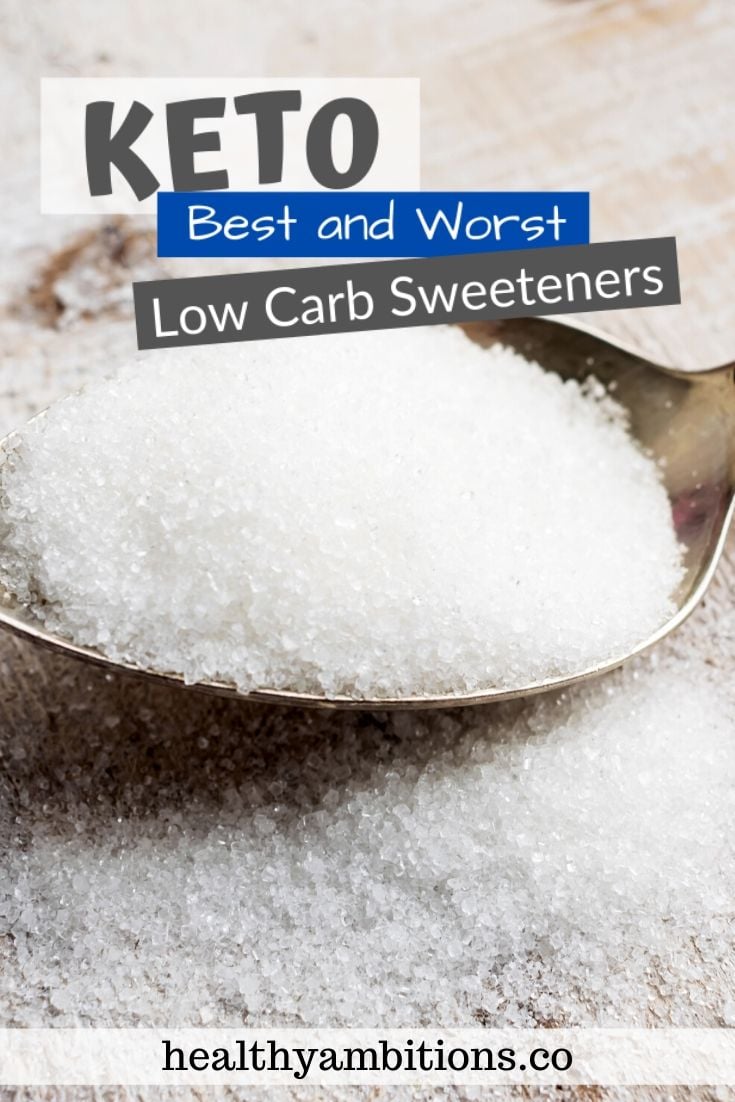
This post may contain affiliate links, which helps keep this content free. Please read our disclosure for more info.
The Sugar Addiction
Let’s get one thing out of the way; The struggle for sweet treats is real, y’all!
While I’m not here to specifically talk about table sugar in this article, it is worth noting that refined sugars exist in everything these days.
Seriously, sugar comes in all shapes, sizes, colors, and flavors, AND some that’s not even found in nature.
Just a few names you might see include: sucrose, high-fructose corn syrup, agave, caramel, dextrin, dextrose, maltose, galactose…and the list goes on.
One article from Healthline names 56 different names for sugar!!
We clever little humans found novel and imaginative ways to evolve sugars to the point of driving a near-global addiction.
Not quite weaponized but geez, c’mon!
Have you ever fully detoxed from sugar? The withdrawal symptoms are no joke! But that’s for another article ?
Ok, I’m jumping off the soapbox now but let’s all agree that the addiction is real.
The (Natural) Sugar Alternative
Moving on… My little table sugar tirade is over and now we’ve all agreed on a few things.
Sugar is unhealthy and needs to be kicked to the curb and we’ve got some work to do!
There is an ongoing and growing list of low-carb sweetener options.
Some are good. Some are bad.
And while you can swap out table sugar for any of the low carb sweeteners on the list, certain sweeteners work better in some recipes than others.
It’s pretty confusing really so let’s grind through some of the specifics.
I get it. Too many choices sometimes, right?
You might be saying, “I gave up honey in my coffee already and just want to jump on this low-carb healthy-living locomotive without thinking about it.”
Well, news flash! I’m sorry to say it isn’t quite that easy.
Because there are some not so good low carb sweetener choices out there, ya gotta get smart about it.
Take the natural versus artificial debate. Simply put, our bodies are not cut out to effectively deal with artificial ingredients, whereas, we tend to do better with more natural choices.
Low-carb sweeteners included.
Why is that you ask?
Well, studies have shown that consuming artificial sweeteners actually increase hunger, leading us to eat more.
And of course, more calories IN translates to increased weight or difficulty in losing weight.
I grew up on Diet Coke, and LOVE it…but it’s not doing me any favors in the cravings and weight department.
If you really need a soda, choose a stevia-sweetened brand like Zevia.
With that in mind, don’t believe for one minute that natural low-carb, keto-approved sweeteners let you off the hook completely!
In some Keto circles, such as Common Sense Keto, it’s believed that ANY additional sweeteners (natural and artificial) can cause our needy little bodies to want more.
So, what’s the lesson here? Naturally (see what I did there), we want some sweet treats in moderation, and the best approach is to use minimal amounts of natural sweetener to satiate those cravings.
Less sweetener = reduced cravings = fewer calories in = less unhealthy weight to lose or maintain. Brilliant, right?!
Low Carb Sweetener Conversion Chart
Ever wonder how all those low carb Sweeteners measure up to table sugar and one another?
Here is the low carb sweetener chart I promised which includes the best keto-approved sweeteners I extensively use (green), and those sweeteners I actively avoid (red).
You’ll notice I AVOID all artificial sweeteners, but there is even a “natural” sweetener I avoid which I’ll explain in a minute.
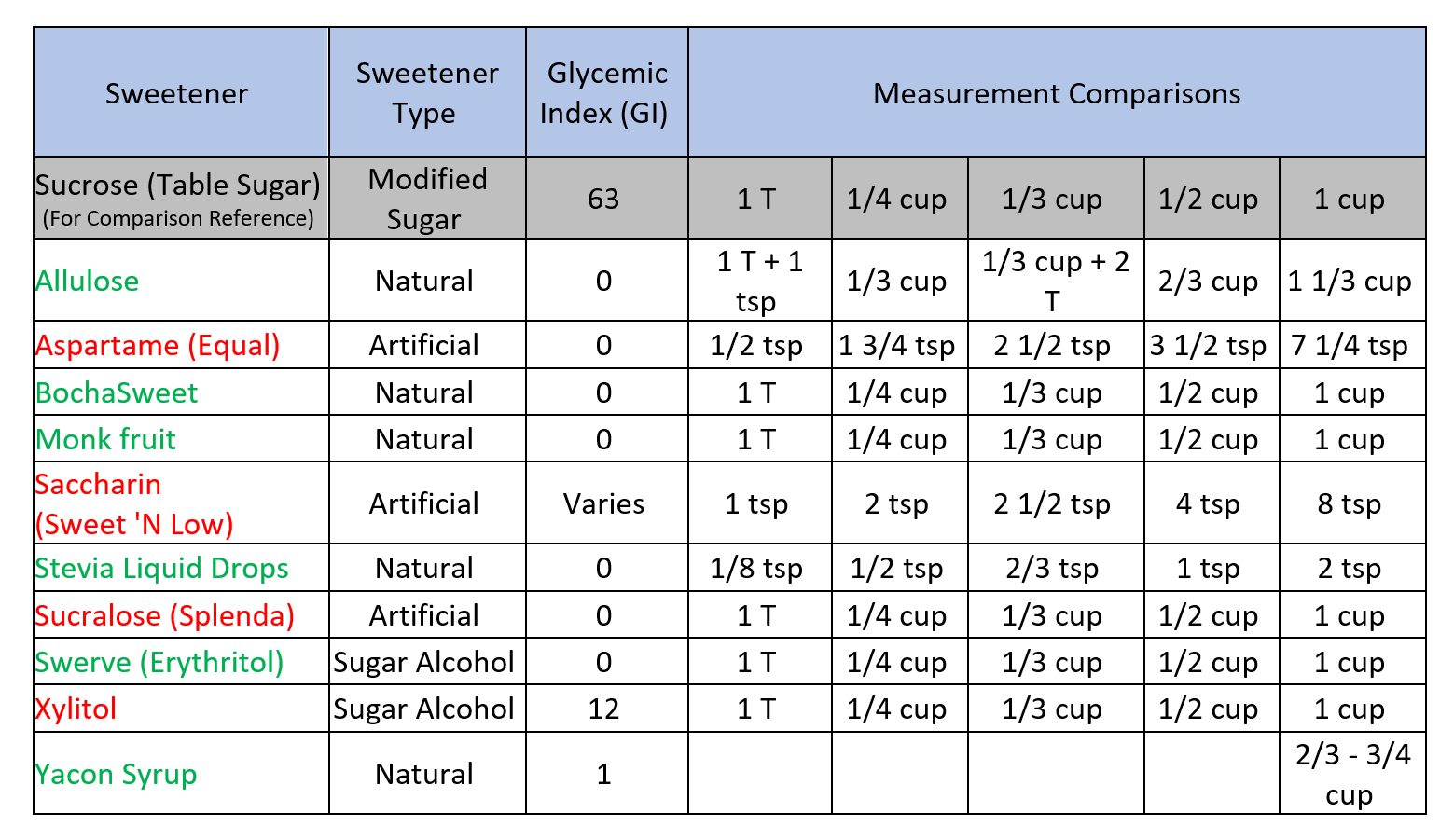
So Many Low Carb Sweetener to Choose From!
Now you are asking the questions, “why do I use what I use and avoid what I avoid?”
That is a great question and I was thinking you may be curious, so here ya go.
Below is a little Pros and Cons list for each of the sweeteners above (Excluding table sugar of course because you’re already keto-smart and know why we avoid that one ?)
Low Carb Sweeteners I Personally Use
Allulose
The MUST-HAVE sweetener for homemade ice cream!
You’ll notice most of my ice-cream recipes call for Swerve Sweetener, but I plan to update all those recipes very soon.
If you want that wonderfully soft, fresh-scooped texture, then Allulose is the one!
I’ve never had ice cream (homemade or store-bought) that stayed soft enough to scoop after being in the freezer for a day.
Until now!

PROS
- Taste and bakes just like real sugar.
- Glycemic Index of ZERO
CONS
- It’s one of the more expensive low-carb sweeteners
- Only about 70% as sweet as real sugar (but I don’t think that’s a problem)
MY FAVORITE USES
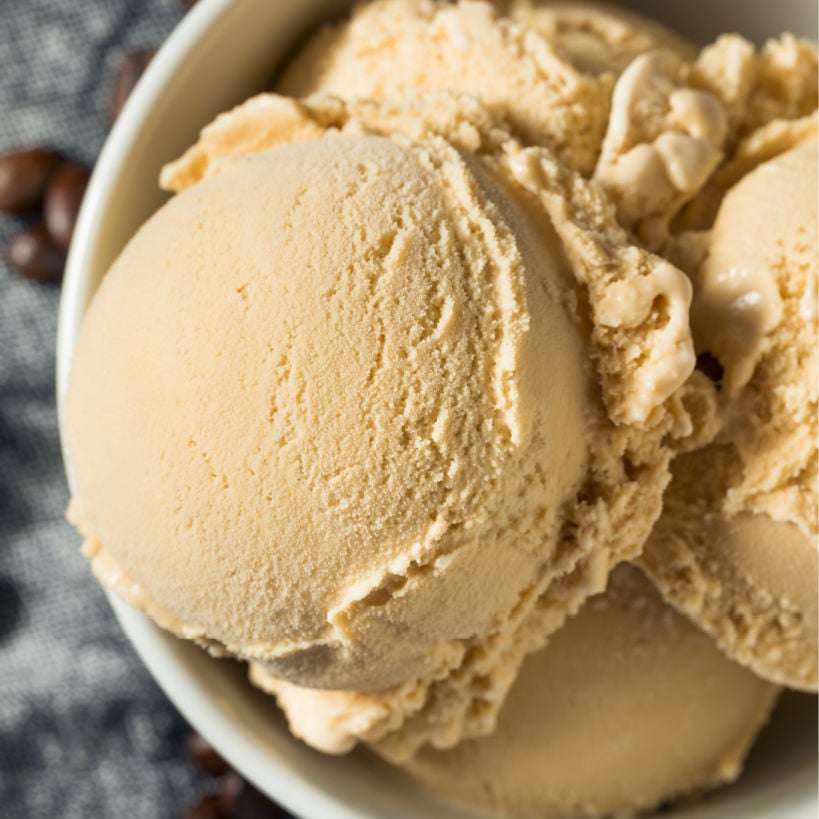
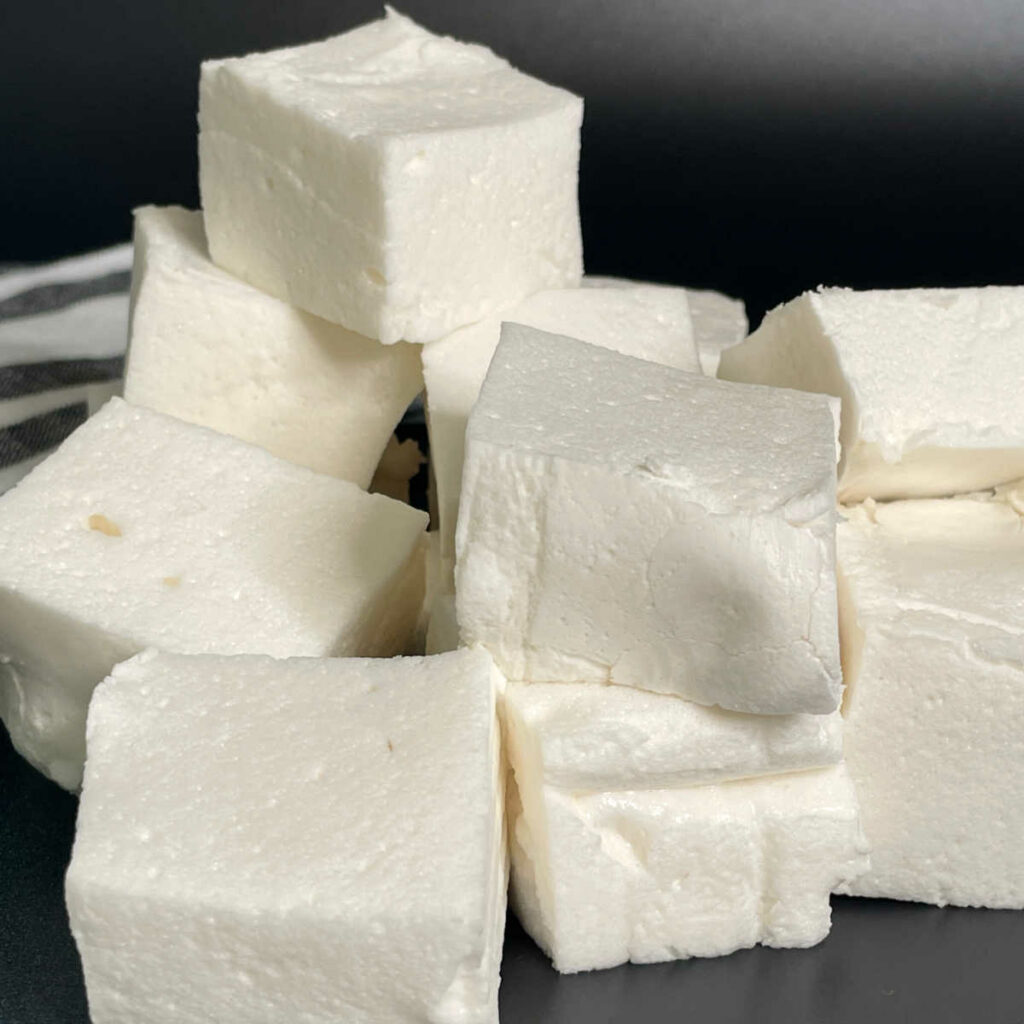
BochaSweet
BochaSweet is one of my new favorite finds in the world of low-carb sweeteners.
Looking for a gooey pie filling? My husband was really missing his favorite holiday dessert, pecan pie.
Although I’m not a personal fan of anything “pecan” (I’ve always referred to them as dirty little nuts because they taste like dirt, lol), he was raised on them.
I persevered, however, to find away to give my husband back his favorite pie, and after a few trial and errors (he ate those too!), I discovered the power of the BochaSweet.
PROS
- Taste just like real sugar
- Glycemic Index of ZERO
CONS
- More expensive than other low carb sweeteners
MY FAVORITE USES
- Pecan pie filling
- Low carb caramel sauce
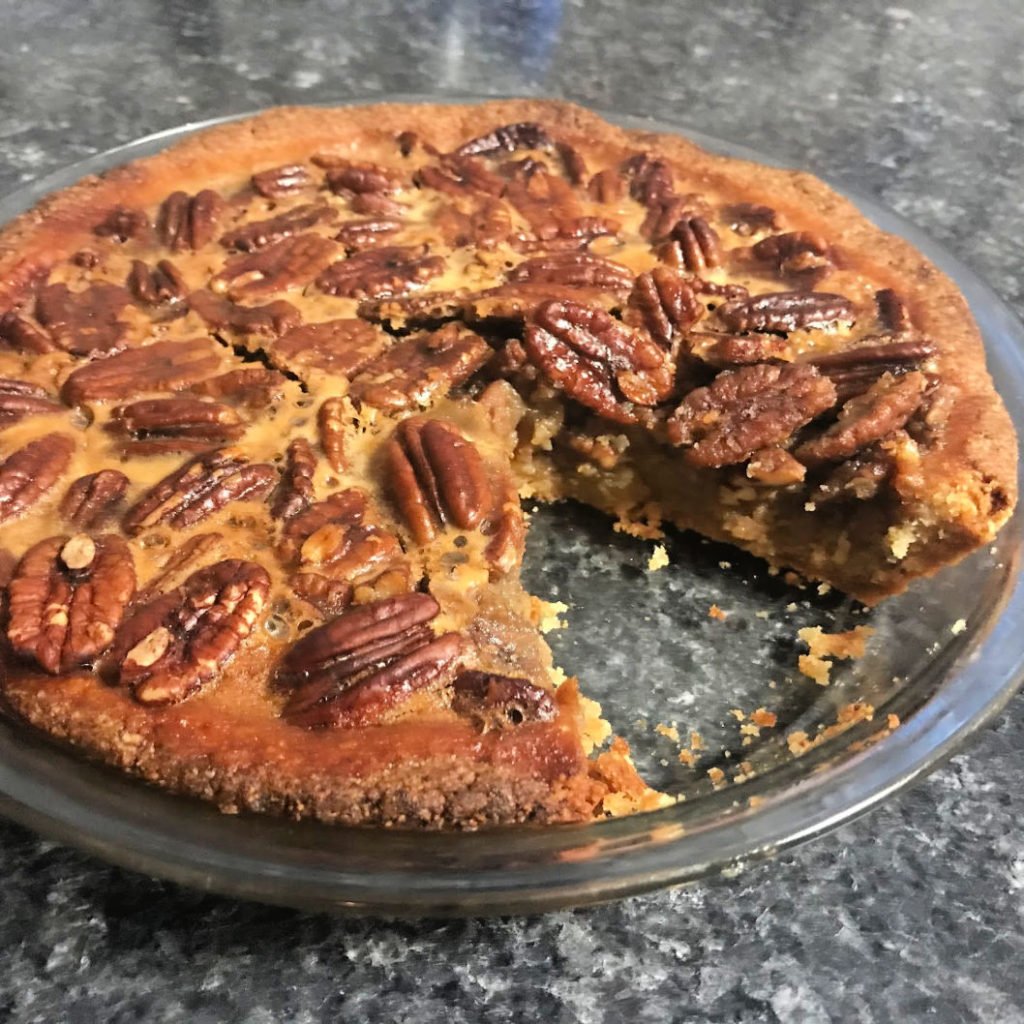
Monkfruit
Monkfruit is awesome, but I especially enjoy the Lakanto brand Maple Flavored Syrup on pancakes and waffles.
It will change your life! I mean it folks!
Drizzle a serving of Lakanto Syrup (made from monk fruit) on homemade keto pancakes (or waffles) and you will receive an immediate promotion to Queen or King of the castle.
PROS
- Plant-derived
- Glycemic Index of ZERO
CONS
- Some people complain about an aftertaste
- The maple-flavored syrup is more expensive than regular syrup, but about the same as real maple syrup.
MY FAVORITE USES
- The syrup! On top of homemade keto pancakes
- Mini-Marshmallows for hot cocoa!
Stevia Liquid Drops
These little drops are packed with flavor and there are many flavors to choose from.
We use stevia liquid drops for a variety of drinks including adding a little flavor boost to our protein shakes on occasion.
Sometimes I even sneak a drop into my coffee when no one is looking… ?
PROS
- Plant-derived
- Glycemic Index of ZERO
- Tons of flavor options!
CONS
- It’s easy to use too much causing a bitter taste.
MY FAVORITE USES
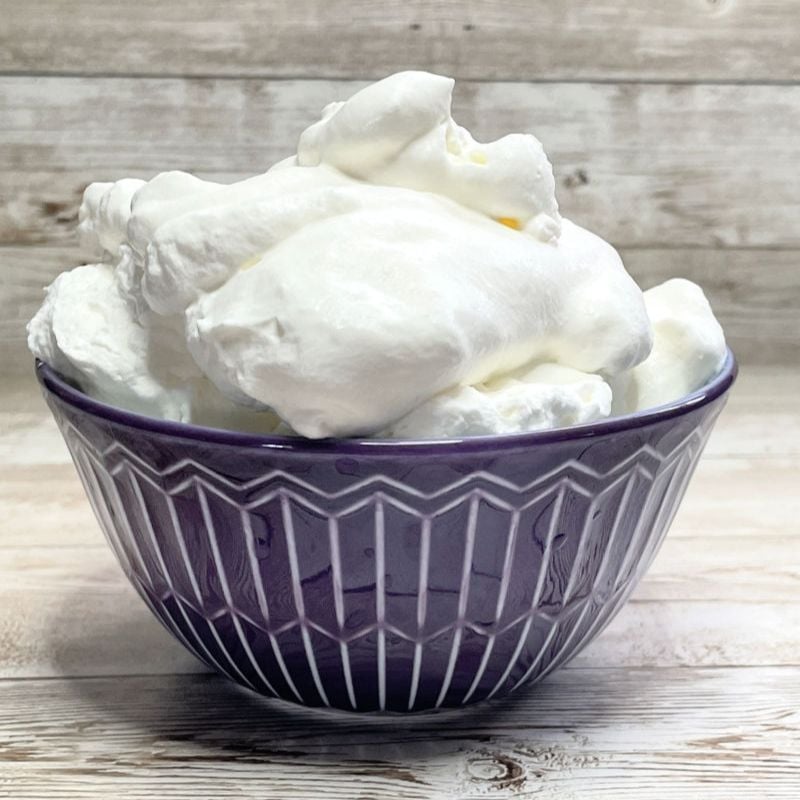
Swerve (Erythritol)
Absolutely the workhorse for our kitchen, Swerve has a permanent place in our pantry for three different variants and I use each one for different purposes.
- Swerve Granular– Great for cookies, cakes, muffins, etc. Take it for a spin with my Incredibly Rich Chocolate Cake recipe to see for yourself!
- Swerve Powdered – Fudge, fudge, fudge! In fact, I have a Peanut Butter and Chocolate Fudge that you’ll want to try! Also great for icing/frosting and sprinkles. Yes, I said it! Sprinkles!
- Swerve Brown – Last but certainly not least in the Swerve lineup, it’s great for a wonderful caramel sauce that just so happens to top off our ice cream quite splendidly. It also acts as a great flavor boost in certain desserts, like my “Oatmeal” Crème Pie
PROS
- One of the more affordable low carb sweeteners (relatively speaking, of course)
- Glycemic Index of ZERO
- Measures 1:1 with sugar (super easy to convert recipes)
CONS
- Because it is erythritol based, there is a cooling effect that turns some people off.
- The sweetener tends to recrystallize once cooled down, so not great for sauces.
MY FAVORITE USES
- Cakes, cookies, and brownies! (see above links for Swerve-Type specific recipes)
Yacon Syrup
Looking for that molasses substitute. I’ve got you covered!
This Yacon Syrup is the BEST Molasses Substitute. Ginger-bread men, Snaps, Whaaat?!
PROS
- Plant derived
- Glycemic Index of 1
- Doubles as a gut-benefitting prebiotic
CONS
- Higher in carbs compared to other low-carb sweeteners
- Price is on the high side, but a little goes a long way, and the bottle will last you a long time! Well, at least as long as regular molasses.
MY FAVORITE USES
- Gingerbread Cookies
- Chocolate Chip Cookies (for a nice flavor boost!)
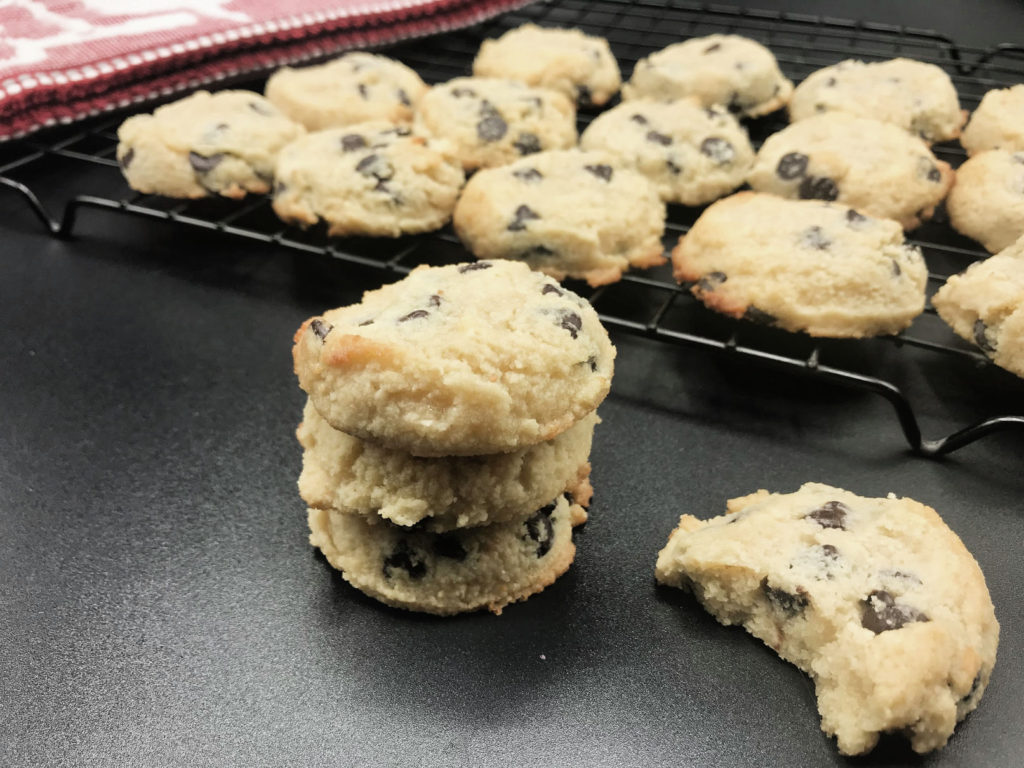
Low Carb Sweeteners I Personally AVOID
The following list includes both natural and artificial, low carb sweeteners. Many people in the keto world choose to use these sweeteners, but we do not, and I’ll explain why.
Xylitol
We have a couple of furr babies in our home and therefore never bring this sugar alcohol into our recipes.
We’ll leave this one for the non-pet owner blogger to delve into.
The issue seems to be a potential for rapid insulin release in pets and we simply want to avoid that.
In addition to the known risk to pets, even though this is a sugar alcohol, it does rank on the GI scale with a whopping 12!! Compared to ZERO, that is a significant difference.
It is not a low carb sweetener I would recommend to diabetics.
Saccharin (Sweet ‘N Low)
Aside from the fact that this is an artificial sweetener, several other considerations keep this one out of our home.
These include the potential for gut-bacteria imbalances and the potential for sulfa drug allergies.
And truth be told, it really doesn’t taste that great. But don’t tell my Granny that, because she still uses it to sweetener her tea!
Sucralose (Splenda)
Too much to talk about with this one. There is a laundry list of unhealthy attributes and negative side effects of sucralose ranging from gastro to respiratory, epidermal to neurological.
It’s heavily processed and the name brand version contains a couple of carb-heavy fillers to boot.
No thanks!
Aspartame (Equal)
This one is difficult for me. I grew up on Diet Coke and LOVE Diet Coke. But we all know that most zero-calorie soft drinks are sweetened with aspartame, and it’s not good for you.
It’s no secret that aspartame has been incredibly controversial for a long time.
For me personally, Alzheimer’s Disease runs on both sides of my family. And Aspartame has been linked to many serious health problems, specifically Alzheimer’s Disease.
The List for Low Carb Sweeteners is Ever Evolving
So, there you have it, folks! A laundry list of low-carb sweeteners, why they’re good (And some not so good) for your own Keto-approved lifestyle.
I’ve also learned that the more I experiment and investigate these various sweeteners that new ideas and uses pop-up (such as, the allulose for ice cream thing that was a game-changer for our Family Movie Nights.)
Seriously, talk about a moment of nirvana for our family! The trial and error is fun but too much can get old so I’ll continue to do as much as I can to save you the trouble.
Be sure to check out some of these sweeteners with my recipes and let us know what you think in the comments below!
Finally, I’d love to hear what you’ve been doing out there on your own with the various sweeteners in your pantry too!

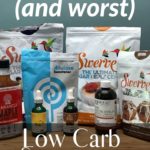







I know you say Splenda but what about the Splenda Stevia? I have a box of that I’ve been using in my morning coffee? Should I say clear? Thank you!
If it’s the one with Erythritol and Stevia Leaf Extract as the ingredients, then I’d say you’re all good to continue using it!
So without reading EVERY word. I looks like, to me, the monk fruit or stevia drops are best and natural?
Kim
What about powdered stevia? Is it ok on keto and are the conversions the same?
I don’t use it personally, but as long as the only ingredient is stevia extract powder or leaf, you should be fine. The conversion from Stevia Liquid Drops to Stevia Powder should be 1:1, but double-check the label to make sure 😉